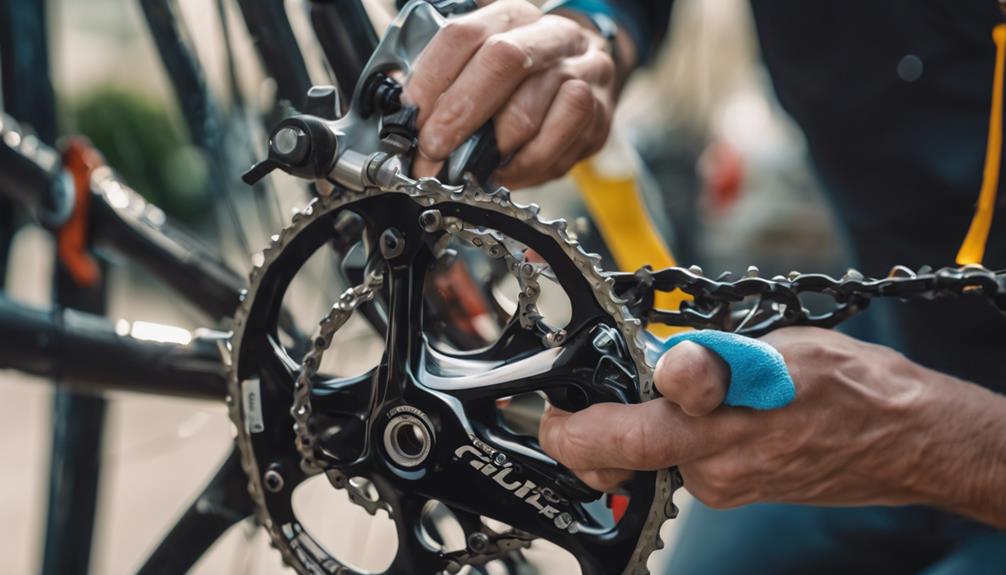Proper nutrition plays a critical role in optimizing a cyclist’s performance and endurance on the road. Whether you’re gearing up for a leisurely ride or a competitive race, understanding what to eat before hitting the saddle can make a significant difference in your energy levels, stamina, and overall experience. This article delves into the essential aspects of pre-ride nutrition, providing insights into the nutrients needed and the best practices to follow for a successful cycling session.
From selecting the right macronutrients to timing your meals appropriately, this guide will furnish you with the knowledge required to enhance your cycling performance through effective dietary choices. We’ll explore the ideal foods to consume, hydration strategies, and how to tailor your nutrition to your individual needs, ensuring you are primed for every ride. How To Make A Mountain Bike TrailDon’s Bike Shop Rialto
Understanding the Importance of Pre-Ride Nutrition
Nutrition before a bike ride is crucial as it directly affects your body’s energy levels, endurance, and recovery. Consuming the right foods can optimize your performance, allowing you to ride longer and with greater intensity. Energy demands increase significantly during cycling, making it essential to fuel your body adequately to avoid fatigue and enhance overall performance. Proper pre-ride nutrition can also facilitate faster recovery times, ensuring that you are ready for your next adventure on the bike.
In addition to physical performance, nutrition before cycling plays a psychological role as well. Knowing that you are fueling your body correctly can boost your confidence and mental preparedness for the ride ahead. Whether you are an amateur cyclist or a seasoned professional, understanding and implementing effective pre-ride nutrition can elevate your cycling experience significantly.
Key Nutrients to Fuel Your Cycling Performance
A cyclist’s diet should primarily focus on three key macronutrients: carbohydrates, proteins, and fats. Carbohydrates are the primary energy source for endurance athletes, providing the necessary fuel for sustained efforts. Consuming carbohydrates before a ride replenishes glycogen stores in the muscles and liver, directly impacting performance and stamina. Opt for easily digestible sources of carbohydrates to avoid gastrointestinal discomfort while riding.
Proteins play a pivotal role in muscle repair and recovery. While they are more critical post-ride, consuming some protein before cycling can help minimize muscle breakdown during prolonged efforts. Fats, although slower to digest, are essential for longer rides where endurance is required. Including healthy fats in your pre-ride meal can provide a sustained source of energy, particularly for rides exceeding an hour.
Timing Your Pre-Ride Meal for Optimal Energy Levels
Timing your pre-ride meal is as important as the meal itself. Generally, it is advisable to eat a substantial meal about 3-4 hours before your ride to allow for proper digestion and energy absorption. This meal should be rich in carbohydrates complemented by moderate protein and healthy fats. Eating at this interval allows your body time to convert the food into usable energy while minimizing the risk of discomfort during your ride.
If you’re short on time, a smaller snack can be consumed about 30-60 minutes prior to cycling. This snack should focus on easily digestible carbohydrates, such as a banana or a slice of toast with honey, to provide a quick energy boost without weighing you down. It’s important to listen to your body and experiment with meal timing to discover what works best for your individual digestive system and energy needs.
Ideal Macronutrient Ratios for Cyclists’ Meals
The ideal macronutrient ratio for a cyclist’s pre-ride meal typically emphasizes carbohydrates with a balance of protein and fats. A common guideline is to aim for a ratio of approximately 60-70% carbohydrates, 15-20% protein, and 15-25% fats. This ratio ensures that you are sufficiently fueled for the ride while also providing necessary nutrients for muscle repair and overall health.
Individuals may need to adjust these ratios based on the intensity and duration of their ride. For example, longer rides may require a higher carbohydrate intake to sustain energy levels, while shorter, high-intensity rides may benefit from a balanced approach. It is essential to tailor your macronutrient ratios according to your personal preferences, metabolic needs, and exercise goals.
Best Pre-Ride Foods: Carbohydrates, Proteins, and Fats
When selecting foods for a pre-ride meal, focus on high-quality carbohydrate sources such as whole grains, fruits, and starchy vegetables. Items like oatmeal, whole-grain bread, and sweet potatoes provide complex carbs that release energy gradually, ensuring sustained performance throughout your ride. Additionally, fruits such as bananas and berries deliver simple sugars that digest quickly, making them ideal for pre-ride snacking.
For protein, lean sources such as yogurt, eggs, or chicken can be included in your meal. Greek yogurt with fruit or a scrambled egg on whole-grain toast can make for a balanced pre-ride option. Fats should come from healthy sources like avocados, nuts, or olive oil, which can enhance the meal’s energy content without causing digestive issues. Overall, aim for a well-rounded meal that incorporates a variety of these nutrient-rich foods.
Hydration Strategies: How Much Water to Drink
Hydration is just as important as nutrition when preparing for a bike ride. Dehydration can significantly impair physical performance and cognitive function, making it essential to ensure that you are well-hydrated before you start pedaling. A general guideline is to drink at least 16-20 ounces of water 2-3 hours before your ride, followed by another 8-10 ounces about 20-30 minutes prior to departure.
It is also advisable to monitor your fluid intake during your ride, especially on hot days or during long rides when you may sweat more profusely. Aim to drink 7-10 ounces of fluids every 10-20 minutes while cycling. Electrolyte-rich drinks can also be beneficial during longer rides, as they help to replenish essential minerals lost through sweat.
Snacks vs. Meals: What to Eat Before a Ride
Determining whether to consume a full meal or a snack before riding depends largely on the timing and intensity of your planned outing. For longer rides or highly intense sessions, a full meal that is rich in carbohydrates, with a moderate amount of protein and fats, is recommended to ensure adequate energy levels. This meal should be eaten a few hours prior to riding to allow for optimal digestion.
Conversely, for shorter rides or situations where time is limited, a quick snack can suffice. Aim for easy-to-digest, carbohydrate-rich foods such as energy bars, fruit, or yogurt, consumed about 30-60 minutes before riding. The key is to experiment with different options to find what provides the best energy and comfort for your body during cycling.
Individual Needs: Customizing Your Pre-Ride Nutrition
Every cyclist has unique nutritional requirements based on their individual metabolic rate, cycling intensity, and personal preferences. Factors such as body weight, fitness level, and even the weather can influence your pre-ride nutrition strategy. It is essential to listen to your body and adjust your meal plans accordingly. Some cyclists may find they perform better on a high-carb diet, while others may prefer a more balanced approach including proteins and fats.
Experimenting with different foods and meal timings during training rides is an effective way to find the right pre-ride nutrition strategy. Keep a journal to track what you eat before each ride and how you feel during the ride. This information can help you fine-tune your nutrition strategy to optimize performance and prevent discomfort or energy crashes.
Common Mistakes to Avoid Before Cycling
One of the most common mistakes cyclists make is underestimating the importance of pre-ride nutrition. Skipping meals or relying solely on caffeinated beverages can lead to premature fatigue and subpar performance. It is crucial to prioritize a balanced meal leading up to your ride, as your body requires proper fuel to function optimally.
Another common pitfall is consuming heavy, greasy foods before cycling. Such meals can cause digestive distress and hinder performance. Instead, focus on easily digestible foods that provide quick energy without overwhelming your system. Additionally, avoid trying new foods or dietary strategies right before a significant ride, as this can lead to unexpected gastrointestinal issues.
Sample Pre-Ride Meal Plans for Different Intensities
For a low-intensity ride, a meal could consist of a smoothie made with banana, spinach, and Greek yogurt, enjoyed about 2-3 hours before departure. This combination provides an excellent source of carbohydrates, protein, and nutrients without being overly heavy. A light snack, like an apple with nut butter, can also be included in the hour leading up to the ride.
For moderate to high-intensity rides, consider a meal that includes oatmeal topped with mixed berries and a spoonful of peanut butter, about 3-4 hours before cycling. This meal offers complex carbohydrates for sustained energy, protein for muscle support, and healthy fats for additional fuel. A pre-ride snack of a banana or an energy bar can be consumed closer to the start time to ensure optimal energy levels.
In conclusion, understanding the principles of pre-ride nutrition is vital for cyclists aiming to enhance their performance and enjoyment on the road. By focusing on the key nutrients, timing your meals appropriately, and customizing your approach to meet individual needs, you can effectively fuel your rides. Avoid common nutritional mistakes and experiment with different foods to discover what works best for your body. With the right nutritional strategy, you will be well-equipped to tackle any cycling challenge that comes your way.


